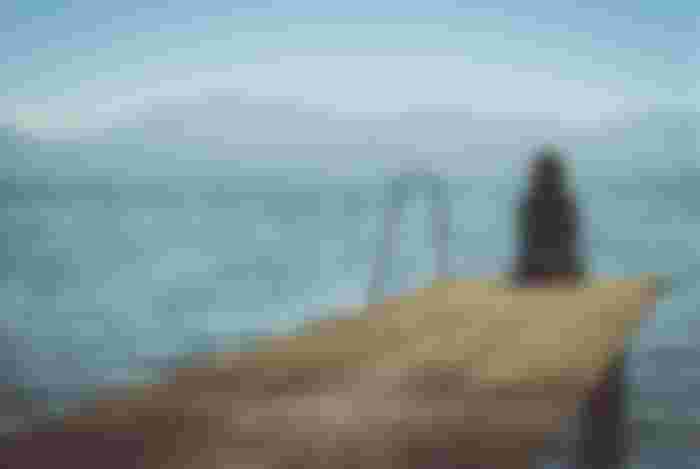
Anxiety, in some form or another, has plagued me for more than half my life. OCD, GAD, EDNOS, PTSD, the list of acronyms is long (I’ll explain each of those soon). And this year I am taking an intentional step towards healing.
I am genetically wired for anxiety. And that, combined with a traumatic, chaotic childhood has primed me for being in flight or fight mode on a regular basis.
I’ve shared about my anxiety before, and how living in more minimalist spaces is a form of self-care for me. I’ve also shared how I’ve used busyness as a drug, helping keep my neurosis at bay.
And my anxiety and high sensitivity are what keeps me hunting for a slower pace of life. Slow is what I need to bring a sense of order, calm, and healing.
Anxiety and trauma
The links between anxiety and trauma are well documented. Exposure to any kind of trauma in childhood increases the likelihood of you developing anxiety and/or depression.
When someone grows up with ongoing trauma, as I did, cortisol levels are often high. And excess cortisol is harmful, not only to our bodies, contributing to a myriad of health issues but also to our mental wellbeing.
Many trauma survivors turn to drugs or alcohol (I have), many turn to overworking, or what I like to call, ‘performance addiction’. I’ve been there too. Others wind up putting on mask after mask, in an attempt to ‘disown’ the person they were when they were traumatized.
And then there’s those of us that throw ourselves into the fast lane, convinced that hiding from feeling or talking about emotions by keeping busy will heal us.
It doesn’t.
I wish it hadn’t taken me so long to realize that extreme busyness would only make things worse. Busyness would only feed my hyper-vigilance and reactivity.
Read more about my childhood trauma here: Three ways I survived a traumatic, abusive childhood.
Digging at the roots
The term anxiety gets overused. I don’t mean that people are claiming to have anxiety and don’t (we all have it to some degree). I just mean that we slap the label on so readily as if the recognition or diagnoses will act as a sticking plaster and hide the healing that needs to happen.
Anxiety is just a symptom of something else, something deeper. To heal, what we really need to do is start digging at the roots.
After many years of just slapping band-aid after band-aid on my anxiety issues, I’ve decided that it’s time to start working from the ground up, and in my case, that means finally working through the trauma I experienced as a child.
And in actual fact, what started years ago, as Generalised Anxiety Disorder (GAD), was probably partly Post-Traumatic Stress Disorder (PTSD). As someone who has studied psychology at the Masters level I feel pretty stupid for not putting these pieces together well before now!
But we get good at ignoring and hiding from the things that hurt us. We are also disassociated and numbed to what happened. When I retell stories from my childhood I often laugh and dismiss the severity of it all. It’s how I protect myself from being re-traumatized.
How to heal
Here’s the bit where I tell you how I’m healing from this trauma and subsequent anxiety and PTSD. And the bit where I tell you how these things might help you heal too.
When I wrote the title of this article, I immediately decided I needed to change it. Because truthfully, I’m still figuring it all out. Healing is a work in progress.
And because I believe we are all unique individuals with a unique set of ingredients needed for our own healing; your recipe for healing is yours to uncover.
But I can tell you what I’ve tried so far, and what I will try this year.
Medication
Medicine has (unashamedly) played a big part in helping me over the last 15 years. I’ve taken Prozac (or another version) almost constantly since I was first diagnosed with GAD – although the real reason I was started on it was to quell an insatiable urge to lose weight – I was also diagnosed with EDNOS (eating disorder not specified) with OCD features.
I’ve worked hard over the last 6 or so years to simplify and add mindfulness and meditation to my daily life in hopes of one day being able to ‘come off’ the medication. Sometimes it works, sometimes it doesn’t. Right now, I need the highest dose possible.
I am very grateful for the place that medication has played in my healing. It’s ‘held space for me’ until I was ready to start digging at the roots.
Talk therapy
I’ve also attended various counseling sessions over the years, the majority using some sort of cognitive-behavioral therapy (CBT) framework. The best thing about this therapy though was just being able to verbalize my story. I felt seen and heard.
And I know that for many of you who also suffer from anxiety and other mental health issues, this is a crucial need. Many of us feel ostracized, not believed, and dismissed when we tell our friends and family.
Being seen and heard one of the most basic human emotional needs.
EMDR
Eye Movement Desensitisation and Reprocessing (EMDR), is a fairly new form of psychotherapy that is helpful for those suffering from PTSD.
In an EMDR session, the patient relieves traumatic experiences while the therapist directs their eye movements. The theory is that EMDR works because of the bilateral stimulation which helps to weaken the effects of the negative emotions that are associated with the trauma.
I had several sessions of EMDR a few years back for some mild, situational trauma and found it very helpful. I am on a waitlist to start more sessions focusing on the trauma from my childhood.
Mindfulness
The different mindfulness techniques I’ve used over the years have absolutely helped me to heal too. To a point…
However, when I’m in full-blown panic mode, I struggle to employ any of the techniques I’ve learned.
This is why I focus on making mindfulness not just a tool to use, but a way of life. I believe that eventually, being more mindful of each movement, activity, and word, could become the default I operate from. And then from this place, I will be less likely to get to a full-blown panic attack.
Slowing Down
Saying no more often, scheduling less, and choosing a quiet life are all things that help my anxiety. I just do not have the fortitude to run a million miles an hour, and my body and mind are quick to tell me when I try.
Slowing down with a family can be problematic, but it doesn’t always have to be. The more time I spend with my family, the more inclined I am to underschedule our lives. Parenting is chaotic and noisy enough without having the noise of a million other ‘shoulds and coulds’ overflowing my calendar. Under-scheduling has become my superpower!
So this is how I heal.
It’s not an exact science. Not an exact recipe. It’s more an art.
A little of this, a little of that. Slowly meandering my way towards healing.
If you experience emotional distress or diagnosed mental health problems I want to encourage you.
Allow yourself to be seen and heard. Yes, it’s scary. It’s vulnerable. It’s what Brenè Brown calls a courageous act.
Don’t be ashamed of who you are. Don’t be afraid of speaking your truth. The more we talk about it the less stigmatized we will feel as a whole. And the more we talk, the more we heal.
After all, everyone is a little crazy, most of us just leave our evidence in the closet

Wonderful writing and amazing photograpy dear.